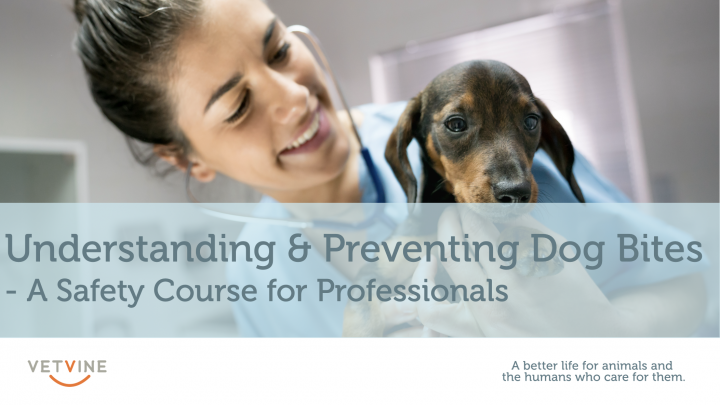
Veterinary and allied pet care professionals are frequently called upon after a dog behaves aggressively or bites a person. They are also commonly asked to advise expectant parents on how to introduce a new baby to the dog(s) in their household. Most curricula and training programs do not prepare veterinary and pet care professionals on how to advise or answer these questions. "Let them sniff the blanket" is certainly not very helpful.
After an incident people commonly state that the dog seemed to bite "out of the blue," however we know that bites are often a symptom of a larger (usually chronic) problem that may have been avoided with proper education, intervention, and management. Dogs often provide warning signs well in advance of a bite, and with an awareness of their body language and behavior many dog bite scenarios can be avoided. Cornerstones of dog bite prevention include being "dog aware," having safety protocols in place, and managing the environment where humans and dogs coexist.
In dog-owning households with children there are a number of additional factors that adults need to consider to keep kids safe. In addtion, the human pregnancy, infant, and toddler phases are each very different, and with respect to human and animal interactions, each phase has its unique challenges, risks and solutions.
Veterinary and pet care professionals are well-positioned to guide and support all pet owners in dog bite prevention as well as baby / toddler safety in dog-owning households. This 4-part webinar series serves to inform veterinary and pet care professionals on general dog behavior and safety, and how to better educate and support families with dogs and children. Through a better understanding of the dog as a canid species, as well as their developmental stages and impacts on behavior, we can support and guide families in how to prevent bites and decrease the risks of a dog being relinquished, rehomed, or euthanized. Participants of this Program will come away with a better understanding of how to prevent dog bites and how to support families with knowledge and guidance regarding relationships between children and dogs. These principles apply to many different scenarios including interactions of dogs with persons with special needs and physical or mobility challenges.

Presented by: Sherrie Yuschak, RVT, VTS (Behavior), KPA-CTP
Brought to you by VetVine in partnership with Family Paws
Approved for 4 hours of CE credit for veterinarians and veterinary technicians by AAVSB RACE, NY state and the NJVMA.
Approved for 4 hours of CEU credit by IAABC and for behavior consultants by CCPDT
Course Description:
Part I: Bonds and Bites
Part II: Pregnancy and Homecoming
Part III: Zero to Six
Part IV: Dog Aware
Course fee*: $129
*Valid PROMO Code discounts will be applied at checkout
Fee includes resources and handouts available for download.